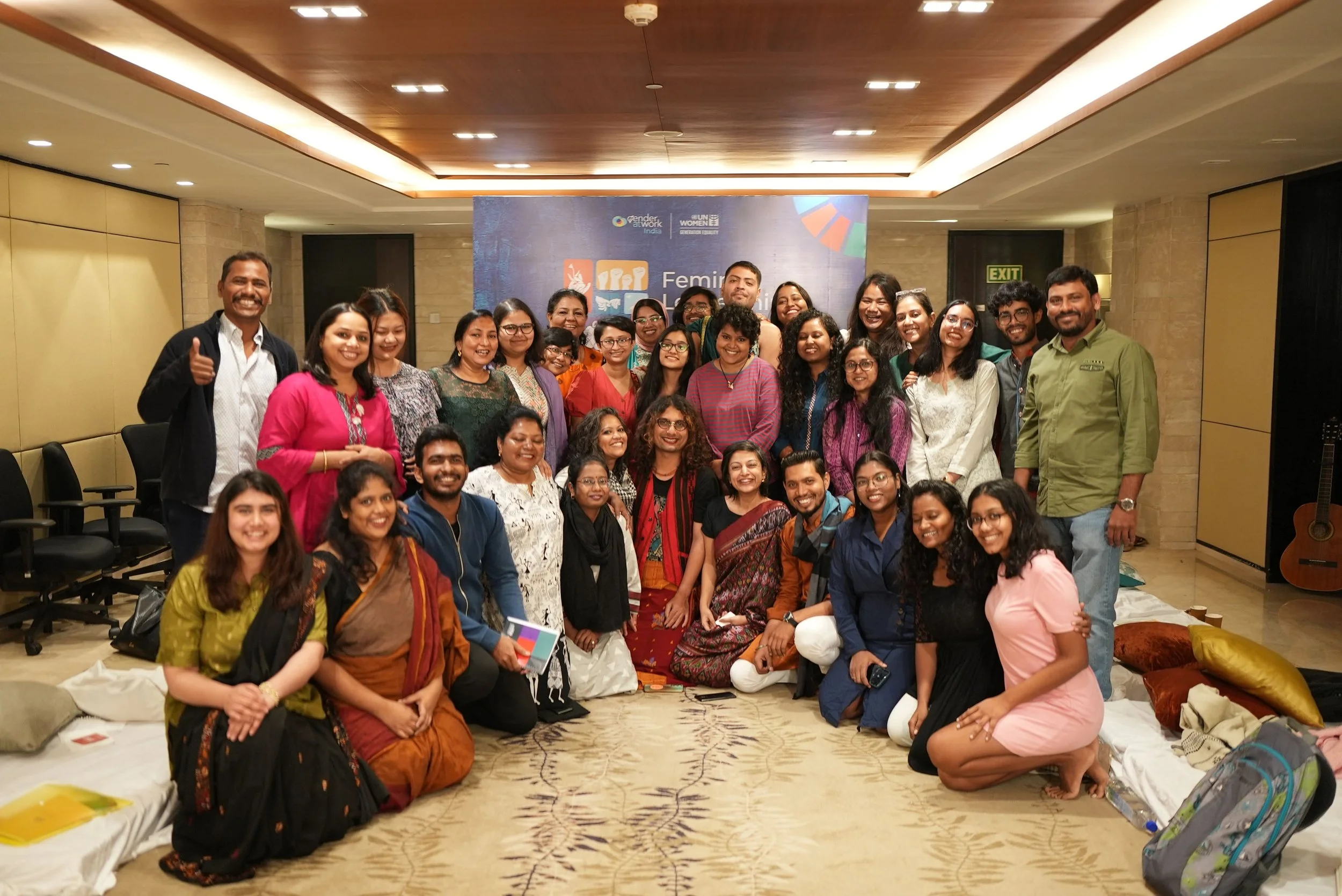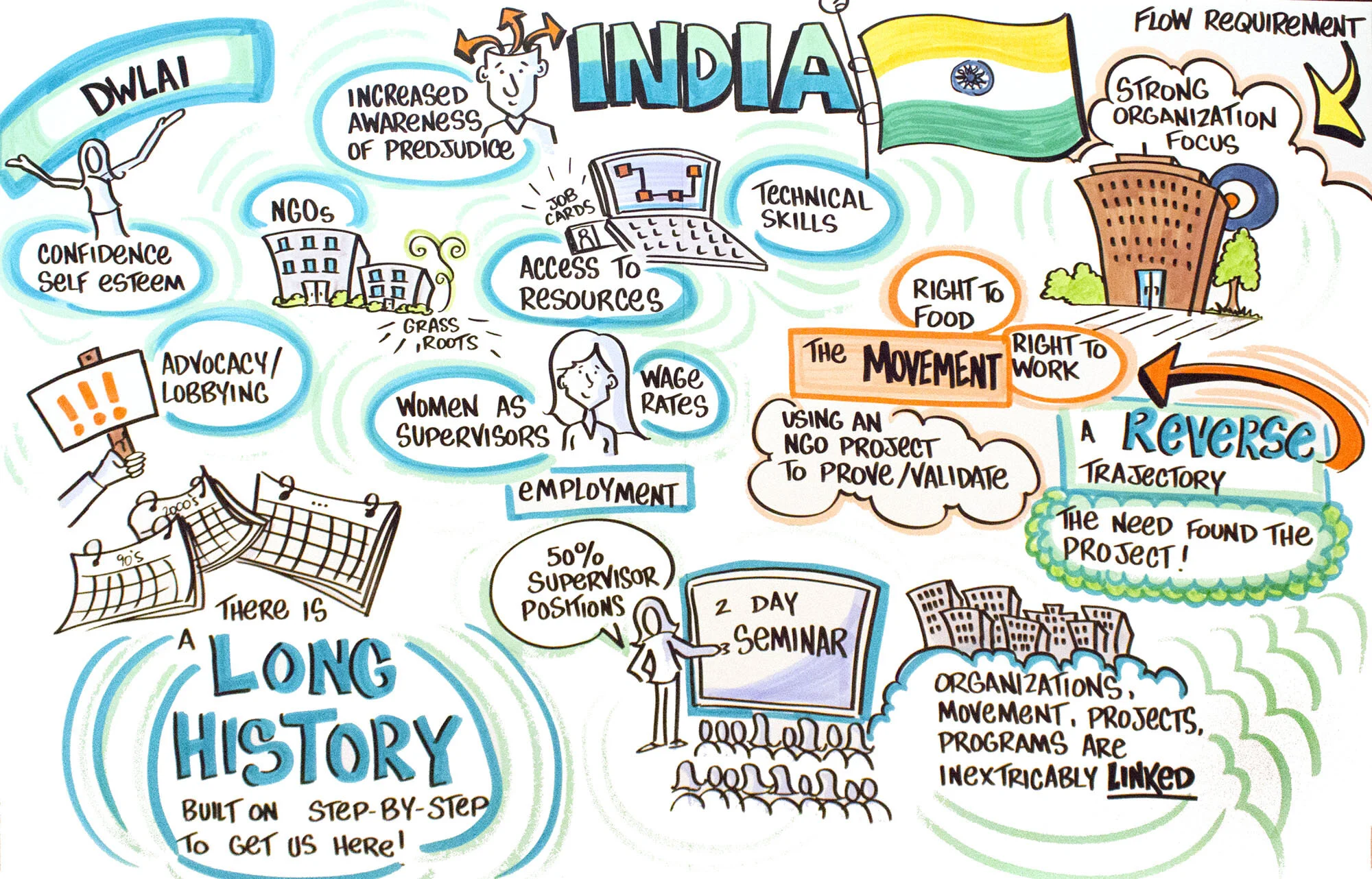Process
We draw from multiple disciplines and principles to inform our thinking and working.
Intersectionality
Social Design
Crip Time
Institutional Lens
Recent Programmes
Feminist Youth Leadership Programme (FYLP)
FYLP follows a ground-up approach to understanding, operationalising, and building resources for feminist youth leadership in India, while simultaneously unpacking the context in which these are embedded. The research (lit review, needs assessment, white paper) attempts to inform and be informed by the praxis (co-creating a curriculum, building a cohort), towards building a process composite that is at once iterative and intentional.
Read more
Previous Programmes
Supporting POCSO in Kerala
Gender at Work India Trust undertook a critical review of the implementation of the Prevention of Child Sexual Offences Act 2012 (POCSO) in Kerala through the intersecting lenses of gender, caste, class, and child rights. The resulting study provides policy recommendations that can contribute towards creating an enabling environment for the protection of girls from sexual abuse, and the realisation of child rights in the state.
Dalit Women’s Livelihoods Accountability Initiative
Significant Outcomes
Participation of Dalit women increased by 400% from 62% to 97% in 8 districts.
Women with a bank account in their name increased from 30% to 70%.
25 women found permanent work post projects after the initiative
Dalit women in 69 village panchayats were reached through awareness-raising activities.
Our most relevant capacity building project was the Dalit Women’s Livelihoods Accountability Initiative (DWLAI) - a two-year project implemented in Uttar Pradesh, in collaboration with four grassroots NGOs, and with a catalytic grant from the UN Women’s Fund for Gender Equality (FGE). The project goals were to increase access to livelihood opportunities for Dalit and marginalised rural women, enhance awareness of their rights, amplify their voices, and build their skills to enable them to take on greater leadership responsibilities in the context of the National Rural Employment Guarantee Act (NREGA). Gender at Work successfully employed the Gender Action Learning (GAL) process to help develop stronger programmes to address the issues relevant to Dalit women. Change strategies included leadership and skill-building of participants (technical, supervisory skills), advocacy at the grassroots and national level through conferences, as well as increasing women’s representation in local labour unions. Four pilot projects were implemented to challenge discriminatory norms and practices at workplaces.
Feminist Leadership Programme (FLOW): 2013-15
This project developed the leadership capacity of 10 women’s rights organisations by carrying out innovative Gender Action Learning (GAL) projects to enable them to lead and support transformational change, and strengthen programmes that empower women. Capacity-building strategies included peer learning, mentoring, and dialogue. Change projects ranged from leadership and skill development, recruitment of women from marginalised communities/minorities as staff to the promotion of a secular environment and introduction of participatory management practices.
About 70% of the women participants reported changed attitudes and behaviours in their personal lives, their organisations and their communities. 30 women are developing skills as Gender at Work India Trust facilitators to lead similar transformation in their communities.













